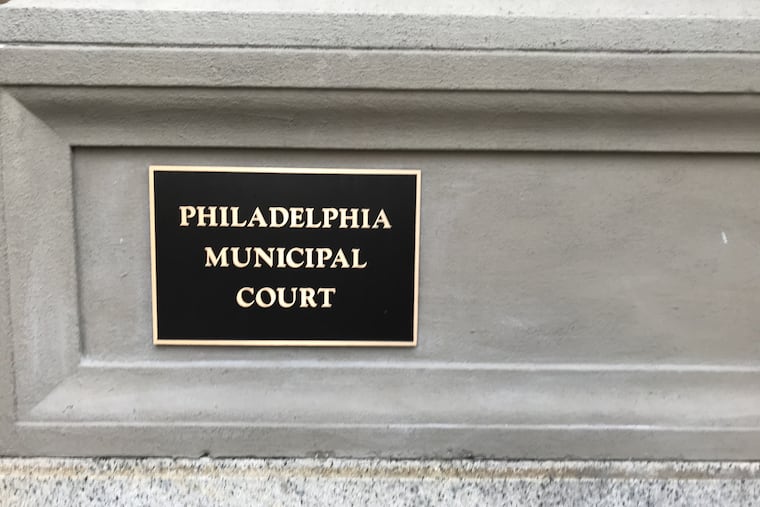The ‘justice gap’ that leaves many Philadelphians facing insurmountable odds | Opinion
Philadelphia must step up and guarantee a right to counsel for its residents in all legal proceedings, criminal or civil.

In the United States, everyone has a right to an attorney for criminal matters. This right is guaranteed by the Sixth Amendment and the famous 1963 Supreme Court case Gideon v. Wainwright, but the right to counsel does not extend to the vast majority of civil proceedings (that is, any noncriminal legal proceeding). There is a movement to change that — with advocates calling for a “Civil Right to Counsel.”
The legal system is incredibly complicated and can be overwhelming to people attempting to navigate it without the assistance of a lawyer. Civil cases can have enormous impacts on peoples’ lives, from evictions to Social Security hearings to deportation proceedings and everything in between. Philadelphia must step up and guarantee a right to counsel for its residents in all legal proceedings, criminal or civil.
Philadelphia has already taken steps in this direction. In 2019, City Council passed a bill to provide free legal representation for low-income tenants facing eviction in Philadelphia. The budget recently agreed upon by Mayor Jim Kenney and City Council allocated $3 million for this program, called the “Eviction Prevention Project.” This is a strong step in the right direction, as evictions are a very common civil legal issue, with Philadelphia averaging nearly 20,000 evictions per year (pre-pandemic, of course). The creation and funding of the Eviction Prevention Project shows that the will and the way for a full civil right to counsel do in fact exist in Philadelphia, but the inequalities of the civil legal system do not just end with low-income tenants facing eviction.
» READ MORE: Tenants’ rights guide: eviction notices and the eviction moratorium
The “justice gap” exists across all civil legal issues, and there are not nearly enough existing resources to provide legal assistance to all who need it. A 2017 study by the Legal Services Corp. found that 71% of low-income households in the United States reported experiencing at least one civil legal problem in the previous year. And the number was even higher in households with survivors of domestic violence (97%), with parents or guardians of children under 18 (80%), and with people with disabilities (80%). The report found that a stunning 86% of those low-income households who reported experiencing civil legal problems either received inadequate legal assistance or received no legal assistance at all. This is an appalling failure of the American legal system and one that must be rectified.
There are tens of thousands of small claims cases in Philadelphia annually, and the numbers regarding legal representation in these cases are just as staggering as the numbers seen in the national study. According to Pew, plaintiffs in small claims cases in Philadelphia were represented by attorneys 91% of the time, while defendants were only represented 12% of the time. This demonstrably leads to unequal outcomes, with plaintiffs winning 97.6% of small claims cases in Philadelphia between 2013 and 2018. Even more significant is that defendants are 10 times more likely to win their small claims cases if they are represented by an attorney than if they are not.
It is unacceptable that our legal system allows so many low-income people, especially people of color, to be left behind. Philadelphia has a poverty rate of 23%, well above the rate for the United States as a whole (which is around 10%). Philadelphia’s populations of color are especially hard hit, with 40% of the city’s Hispanic/Latino population and 27% of the city’s Black population experiencing poverty — rates well above the already too-high rate in Philadelphia. Far too many of Philadelphia’s residents are left vulnerable by the unequal nature of the American legal system, and a failure to build upon the momentum generated by the Eviction Prevention Project to fund a full civil right to counsel would only further those inequalities.
As a law student in Philadelphia and as a Philadelphia-area native, I know there are a lot of fantastic organizations in Philadelphia that provide legal services to those who need them: from well-known organizations like Community Legal Services to organizations that specialize in particular legal areas like the Legal Clinic for the Disabled and the Homeless Advocacy Project to clinics at Philadelphia’s law schools. But it is simply not enough. These organizations do all they can, but too many people fall through the cracks.
The Declaration of Independence, written and signed right here in Philadelphia, says that we are all endowed with unalienable rights, among them “Life, Liberty, and the Pursuit of Happiness,” and that governments are instituted by the people in order to secure those rights. All too often throughout its history, this country has failed to live up to that lofty goal. It is time for Philadelphia to do its part to secure those rights for its residents, by providing a fully funded civil right to counsel.
Christian Hoban is a third-year law student at Temple University’s Beasley School of Law, working toward a career in public interest law.
The Philadelphia Inquirer is one of more than 20 news organizations producing Broke in Philly, a collaborative reporting project on solutions to poverty and the city’s push toward economic justice. See all of our reporting at brokeinphilly.org.